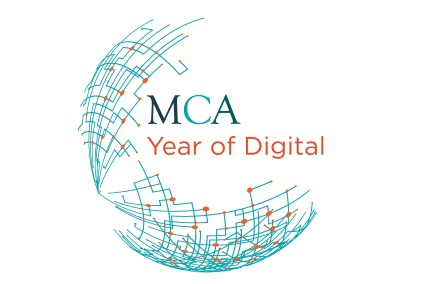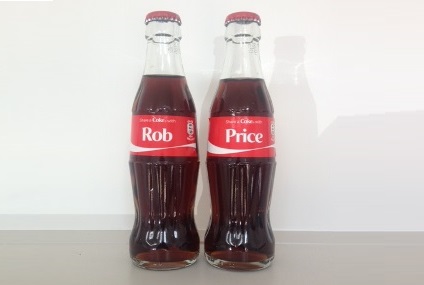To use the words of Neelie Kroes, Head of European Commission’s Digital Agenda, ‘Nearly every business is a Digital business now’. I’d be tempted to drop Neelie’s “nearly”. We’re all Digital now. But what does that really mean? What is Digital?
According to a recent MCA survey, 94% of UK senior executives see Digital as important or very important to their business. I wonder what the other 6% are thinking. 93% of them say they understand Digital very well. And yet, when pressed on what Digital means, they each described it very differently.
Whilst Digital has become the hot economic topic, many will feel that we have lived for some time in the Digital Age. Rapid transfers of data across the internet have vastly improved transaction speeds, enhanced organisations' knowledge bases, and empowered consumers. Why only now have we seen this explosion of focus on Digital, on the rise of the Chief Digital Officer, and on the necessity of Digital Transformation?
Digital is NOT a marketing campaign, a website, a mobile device, ‘1’s and ‘0’s, or about getting rid of paper. It is the collective mindset of a connected world, a culture, an expectation of immediacy of service and access to information as we have become accustomed with the arrival of ubiquitous connectivity. Digital is an opportunity to improve. But it is also a disruptive threat that enables others to compete with you at a much lower cost of entry. To think Digitally is to re-imagine your business from the perspective of ‘what the web would do’, paying no heed to the legacy and accumulated years of experience. Digital operates at sprint speed rather than marathon pace.
The most obvious effect of Digital is in the people around us. Globally there are now over 4bn mobile phone subscribers. Many, even in emerging economies, have smartphones.[1] Take the commuter train. Twenty years ago, people would be reading the newspaper, a book, or possibly listening to their Walkman. Now, commuters play music, read a personalised media digest, watch a film, send emails, work, text, chat, and tweet – all on the same android.
So to some degree Digital is an enabler. People could do many of these things before the Digital age, or approximate them, but not all, and not as easily, and not necessarily on the train. Now Digital gadgets allow them to. Businesses can respond to this. By recognising what consumers want to do, and what products or services they want to consume, they can secure competitive advantage by creating innovative business models that engage consumers individually, immediately, and intelligently.
But the fact that consumers can do so much wherever they are creates an expectation, a culture. [2] All of our commuters can use their devices to find JFK's birth date, to get news as it unfolds, or to view page 96 of War and Peace. They can access tracks from their entire music collection stored in the Cloud. Some can reprogram their domestic TV, their heating or their robot vacuum cleaner. Being able to do this in some areas of life creates an appetite to do it in others. It also creates new appetites. People want to access services, their medical records, buy a car, keep tabs on their children, receive the best deals on insurance, holidays or oven chips, book a safari, arrange a mortgage, all at the touch of button. We can listen to music while travelling. But what about mixing it? We can play games in the back of the car. What about inventing them? And if I can network with people while sitting on the train, why should I commute at all to my dull old-fashioned, City-based workplace? Why shouldn’t I work at home, or in the café, or on the beach? If Digital has already become a key tool for creative professionals like musicians, visual artists, architects, movie makers, car manufacturers, and news providers, how will it impact others in enabling them to work without constraint?
Digital matters to every sector of the economy, from financial services and retail to entertainment and utilities. A pork chop may be a pork chop, but buying it online, selecting your favourite retailer or even your preferred pig farmer, is a Digital experience. Banks probably still have vaults. But the security of their online transactions, and the user-friendliness of their touch free payment apps and self-managed accounts, are where their customers now really experience how good and secure they are. Furthermore Digital technologies and behaviours enable disruption of established industries with a low cost of entry.
Consumers with the latest Digital devices, and especially the Digital “natives” who have never known anything else, have high expectations of service speed and utility. This creates an enormous demand pull that producers must respond to.
But even this is not the full Digital picture.
Digital facilitates business models that have long been valued but have existed more in theory than practice. Collaboration between businesses in alliances and networks has long been seen as a route to efficiency and value creation. The federated firm, with supple and loosely integrated centres of expertise, which combine to address emerging problems, overseen by an information-rich centre, is an ideal business model. [3] Removing tiers of bureaucracy within firms and reducing the “distance” between consumers and products by shortening supply chains have long been extolled as good practice. And of course understanding customers’ needs is central to successful commerce.
Digital makes all these things more possible than before. Digital provides the agility that firms need to modernise. Digital facilitates collaboration through accelerated information and data exchange. It helps firms become confederations of expert centres that use Digital to work together. It forces firms to think about their specialisms, and to identify how to access complementary expertise through virtual collaboration, either from partners or as likely their customers.
Digital is revolutionising the relationship between producers and consumers. Digital lets consumers buy straight from manufacturers and even specify product requirements, like customised Coke bottles. Additionally, Big Data analytics can allow firms not only to understand the consumption patterns of customers and develop products accordingly. It can also help them gather consumer lifestyle information and so anticipate customer need, understanding a product requirement perhaps even before the customer does. We see this increasingly through prescriptive analytics, where expected behaviours drive operational decisions – for example, Amazon delivering your expected orders locally such that they can deliver same day.
Digital is allowing all this to be done at incredible pace. The days of clunky, long term IT contracts are gone. Now supple systems, Cloud-based data storage, bespoke applications and off-the-peg, highly adaptable software, let firms react to new challenges quickly.
The effects of Digital are wide-ranging, very evident yet unpredictable. Digital enables old things to be done in a new way. It allows new things to be done. It creates new understandings of what economic value is by making novel purchasing and consumption patterns possible. Telecoms, retail and entertainment are all converging. High street supermarkets are becoming banks, banks are becoming coffee shops. Consumers expect their needs to be met in more holistic and integrated ways.
In short, Digital is creating a new capitalism, with new opportunities and new challenges. Consumers' Digital expectations drive innovation. Producers and vendors who do not adapt to these expectations will struggle. Supply chains will be shortened, leaving some parts of traditional distribution high and dry. Pace of change and innovation are creating opportunities for new firms and new products to emerge. But value is being destroyed just as fast as it is being created. No one is expected to survive forever, not even the biggest firms. Digital is already destroying Digital, as the death of the Digital camera in the face of the Smartphone/app combination is showing. Data-based business models create storage, management and security issues. For the dyed in the wool 50-something board members, this may all seem very alien. For school-leavers, the Digital economy may present skills challenges which educationalists have not caught up with. What is the future of print media, journalism, the music industry, film? Can they survive the Digital onslaught? Or is it simply the Survival of what the consumer wants!
Yet Digital is exciting. Digital entrepreneurs even seem prepared for a model of capitalism where products and even firms rise quickly and fall quickly, solving problems that are temporary, while their staff and capabilities move onto the next challenge, even on to a new business, with low start-up costs and low barriers to entry. Fast-moving, the Digital economy may present the most accelerated, lubricated and even the most perfect form of capitalism yet.
The above article was written as part of the MCA Year of Digital 
[1] Mobile Service Industries, Technologies, and Applications in the Global Economy, In Lee (ed), IGI Global, 2013, p. 104
[2] In Redefining Business Models: Strategies for a Financialized World, Colin Haslam, Tord Andersson, Nick Tsitsianis and Ya Ping Yin, Routledge, 2013, pp. 204-16the authors refer to this as the Digital Lifestyle Business Model.
[3] http://blog.atos.net/blog/2013/02/19/the-firm-of-the-future-just-is-agile/

